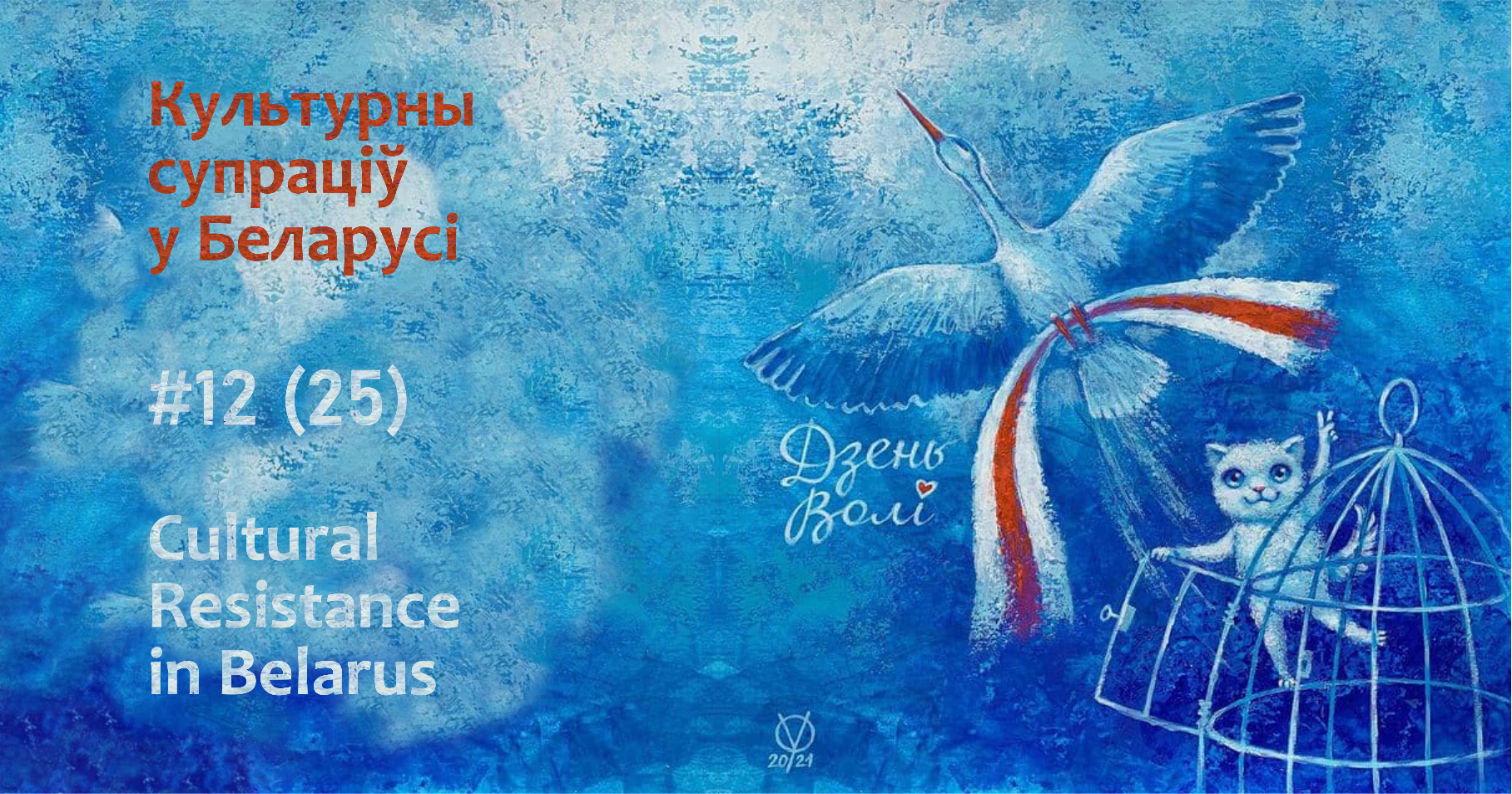
Stand with Belarusian Arts and Culture community. Donate to Save Our Songs campaign.
Arrests, Convictions, Prosecution
On March 22, all participants, about 30 people, of the Mova Nanova event (where people can speak and learn the Belarusian language through interactive lessons, songs, etc.) were detained in Vaŭkavysk. One by one, everyone was released after they’d signed a document confirming their awareness of the administrative responsibility for violating the order of organizing and holding mass events.
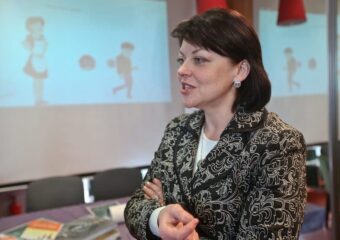
Anžalika Borys [Andzelika Borys], director of the Union of Poles in Belarus, was detained in Hrodna on 23 March and sentenced to 15 days of administrative arrest. The reason for the detention was an administrative case for celebrations on an unofficial holiday “Kazyuki”. The Prosecutor General’s Office of Belarus has opened a criminal case against Anžalika and other persons under Part 3 of Art. 130 of the Criminal Code “Deliberate actions aimed at inciting national and religious hatred on the grounds of nationality, religion, language or other social affiliation, as well as the rehabilitation of Nazism, committed by a group of persons.” They face from 5 to 12 years of imprisonment.
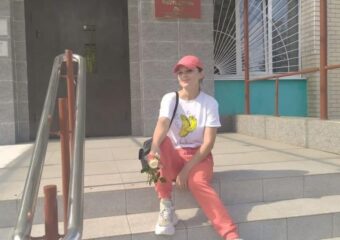
As part of the case, searches were conducted at the Stefan Batory Polish School in Hrodna, as well as at Andrzej Poczobut’s, a journalist and member of the Council of the Independent Union of Poles, Siarhiej and Volha Vieramiejenka, owners of the store “Admietnaść”.
Maryna Michiejeva [Mikheeva], artist, had the house where she lives together with her husband Michalaj, searched on March 24, after which both of them were taken to the Kalinkavichy police department.
Jahor Tubielevič [Yahor Tubelevich], a Belarusian-speaking blogger, was detained on March 24 after his home was searched.
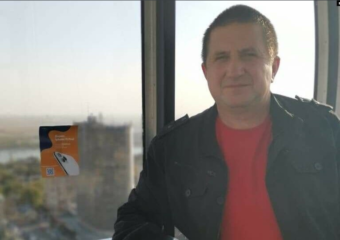
Siarhiej Łaŭruščyk [Siarhei Laurushchyk], a resident of Navahrudak, was detained on March 23 at his home. Police came to him as they did to some other activists (those who were detained for participating in the protests in 2020 and 2021), but found weapons stored in the family museum, which became the reason for detention.
Dźmitry Kubaraŭ [Dzmitry Kubarau], a designer and political prisoner, on 24 March was sentenced to 7 years in a penal colony on charges of organizing mass riots.
Jury Danskoŭ [Yuri Danskov], musician of the band Shaman Jungle, activist of Shod-Belarus, was detained at home on March 25. Shod is a digital platform that allows the people of Belarus to nominate and elect their representatives.
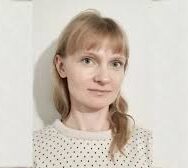
Inna Dabratvor, a mother of five, was fined 1870 EUR [5800 BYN] on March 25 for the portraits of Sviatłana Cichanoŭskaja [Sviatlana Tikhanouskaya], Maryja Kaleśnikava [Maryia Kalesnikava], and Viktar Babaryka and the Pahonia emblem on her windows.
Volha Kalackaja [Kalatskaya], translator, received two years of home imprisonment for slapping an STV employee Grigory Azarenok on his face during one of the rallies. As her last word in court, she cited a poem by Margaret Atwood.
Among more than 240 arrests on March 25 related to Freedom Day, there are creative people.

Dzianis Arher [Denis Arger], photographer and designer (sentenced to 15 days of administrative arrest), Siarhej Belavoki, an artist (30 days of administrative arrest), Darya Iksanava, student of the Art College (15 days of administrative arrest), Larysa Bialkoŭskaya, designer (released), Maksim Svistunoŭ [Maxim Svistunou], artist (12 days of administrative arrest), Ullana Laskievič [Ulyana Lyaskevich], a member of the Turandot amateur theater, was detained in Hrodna.
Poet Dźmitry Strocaŭ [Dmitry Strotsev] on 26 March was summoned for the interrogation by the Savetski district Police Department of Minsk to ask him about “throwing Molotov cocktails on the territory of the police department last October”. He postponed it till Monday.
A criminal case has been instituted against the head of the Hrodna Center for Urban Life Pavieł Mažejka [Pavel Mozheiko] and artist Aleś Puškin [Ales Pushkin]. The reason is a demonstration of a portrait of Augen Zhykhar, who was a member of the anti-Soviet postwar underground in the west of Vitebsk region during WWII. The Prosecutor General’s Office believes that these are “deliberate actions aimed at rehabilitating and justifying Nazism.”
→ March 26 Pavieł Mažejka was detained.

→ Iryna Novik, a Hrodna.life journalist who is a witness in the case, had her home searched.
→ March 27 Aleś Puškin’s home was searched at night, the phones and equipment of all the family members, including his son and daughter, were confiscated. His paintings were destroyed, and the windows were broken in the workshop.
→ March 29 Pavieł Mažejka released on a non-disclosure agreement.
Detained on March 27 at an attempt of a peaceful march in Minsk: Jaŭhien Ciarenćjeŭ [Eugene Terentyev], musician of the band Teleport (12 days of administrative arrest), Nastassia Piatrova, artist of the Opera House orchestra (15 days of administrative arrest).
On March 27, 10 people visiting a museum of local history were detained in Navahrudak.
Pressure, Dismissal, Ban
Belarusian Donbass, a book by journalists Kaciaryna Andrejeva [Katsiaryna Andreyeva] and Ihar Iljaš [Ilyash], was recognized as extremist by court. It is banned in Belarus from now on. Journalist Raman Vasiukovič [Vasiukovich] will be tried for trying to bring 2 copies through the border last year.
Symbols

People are arrested not only for white-red-white flags and flowers, but also for Christmas lights, stickers, badges, a hat, a pair of socks, and a sign with the house number and street name – those are regarded as picketing.
Cimur Bujko [Tsimur Buiko], a poet and an employee of the Institute of Linguistics of the Belarusian Academy of Sciences, was sentenced to 15 days of administrative arrest for “picketing by placing a badge with “Pahonia” and the writing “Long live Belarus” on his backpack.
Cultural Resistance
Vital Aleksiajonak [Vitali Alekseenok], conductor of the orchestra of the University of Munich, has published a book “White Days of Minsk” in the German publishing house S. Fischer. The book tells the story of the events of 2020, which changed Belarus, Belarusians and many people abroad.
Words are more powerful:
Singer Valeryja Suravickaja [Valeria Surovitskaya] (LEAR), who was detained on February 13 at the gig where she performed, and served 15 days of administrative arrest, reads a poem by Valery Marakoŭ [Marakou] “Girl”.
Musician Dzianis Šmatko [Shmatko], who was detained during the post-election demonstrations and sentenced to administrative arrest, reads an excerpt from the famous poem “They Cut Our Land” by the poet Aleś Dudar, who was executed in 1937.
Photographer Volya took a series of photos for the Meduza project: Belarusian women active in the protests, showing how the colors and clothes in these colors have become acts of political expression.
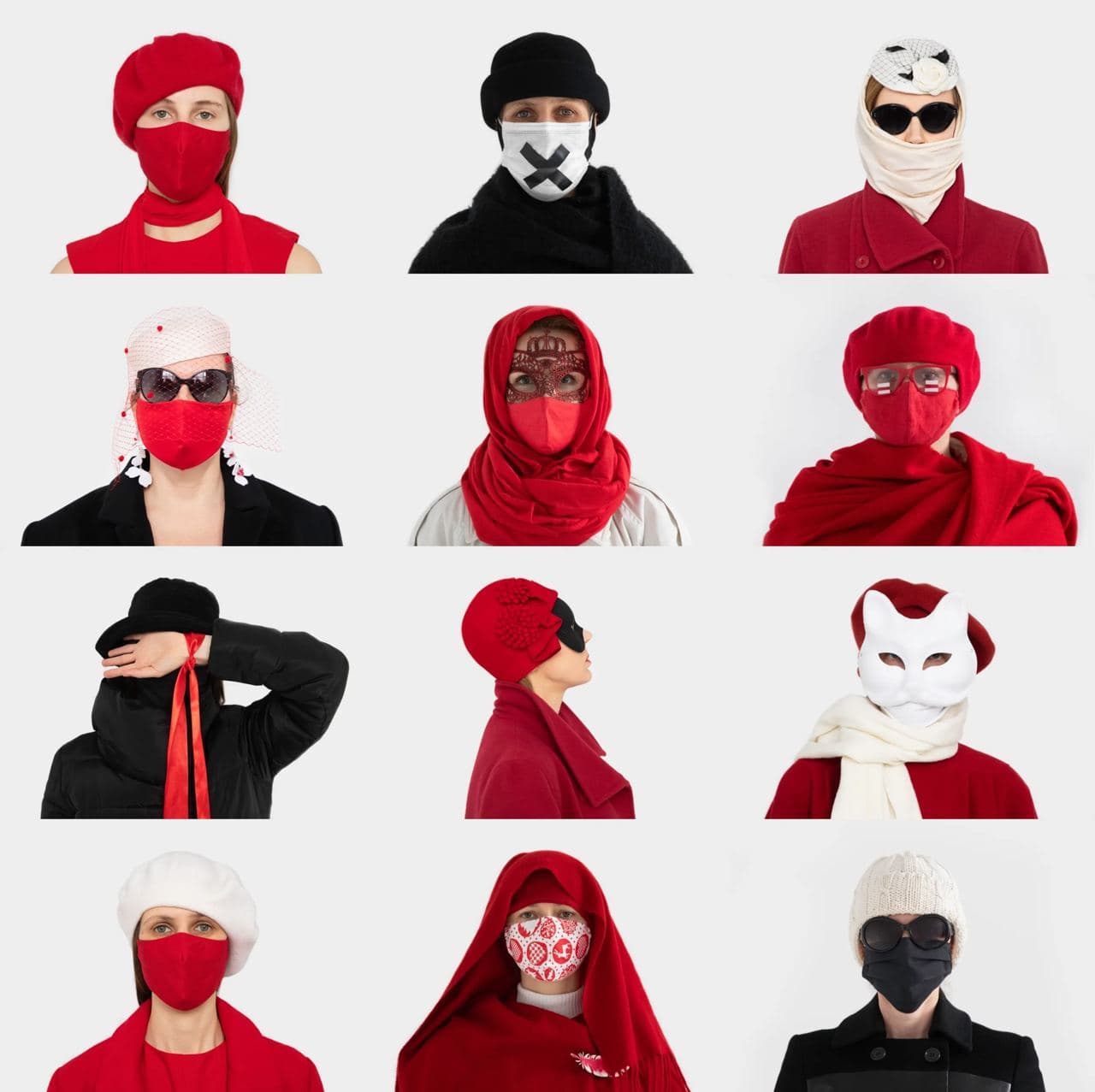
See the link for the songs to Freedom Day.
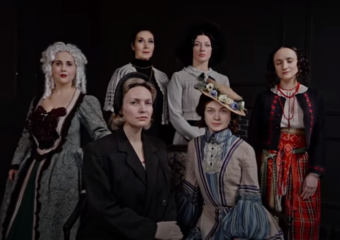
New inspiring video piece from the project Freedom Belarus – about Belarusian women.
Victory Artists: Naviband, VAL and Marharyta Laŭčuk [Margarita Levchuk], online concert on March 26, dedicated to Freedom Day.
On March 27, the Independent Theater Group Kupałaŭcy [Kupalautsy] premiered the trilogy “Fear”, based on Bertold Brecht’s play “Fear and Misery of the Third Reich”.
Voices of Belarusian Culture

“It may sound a little pompous, and one who hasn’t been there won’t be able to fully understand what I put into this, but I felt that no one could ever take away my freedom. It doesn’t matter if there are prison bars or not. For a long time, one of my favorite sayings was “freedom is an internal category””.

Maksim Žbankoŭ [Maxim Zhbankov], journalist, educator, philosopher:
“The whole cultural policy of the state for the last twenty years has been cultivating exemplary collective farmers, as a result we now face a provincial, aggressive, non-critical type of culture, cultural dependence and subordination, blind execution, ruthlessness to another person, total denial of civil rights”.
Svetlana Alexievich addressed Belarusians on the occasion of Freedom Day:

“This day has always been special for Belarus, but this year most Belarusians have anticipated March 25 like never before. We haven’t been as united in our wishes as we are now for a long time. The stories of political prisoners – they are 299 for today – have never been so close to each of us. Our dream is freedom. To achieve freedom, each of us must choose it”.

Viktar Manajeŭ [Manayeu], who worked at the Yanka Kupala theatre for 40 years, told why he couldn’t stay in the theater when the troupe resigned in August 2020:
“Theater is always a collective work. Theater for me is not only walls, it is my director, it is the colleagues I love and respect. This is the reason I left”.
International Solidarity
See the joint report by Belarusian PEN Centre, Civic Solidarity Platform (CSP), International Partnership for Human Rights (IPHR) and Truth Hounds, providing an assessment of the human rights violations against creative professionals, activists and artists by the Belarusian authorities in response to the post-election protests in Belarus.
The art exhibition Every Day. Art. Solidarity. Resistance opened on 25 March in Mystetskyi Arsenal art space in Kyiv. “The art in the exhibition explores, models, and tests political reality, it becomes a direct criticism of power, an act of dissent.”
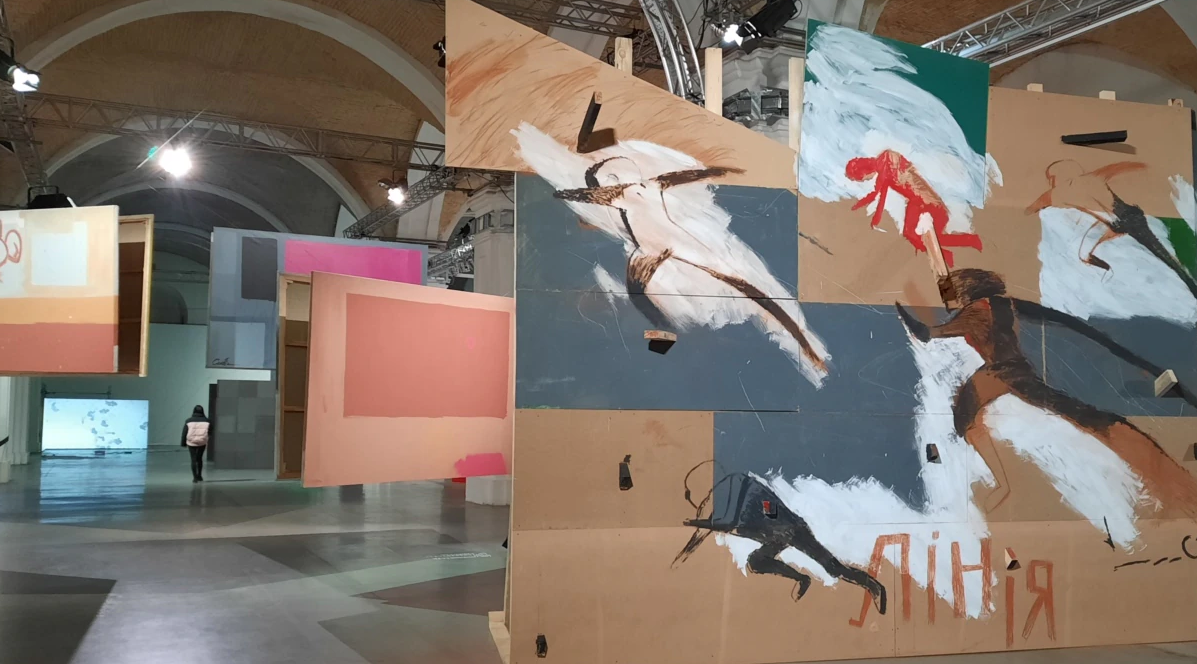
The European Broadcasting Union (EBU) has released a statement regarding Belarus’ 2021 Eurovision Song Contest entry. Belarus will not be participating in the 65th Eurovision Song Contest in May.
Download the pdf-version of issue 25 of Cultural Resistance Monitoring
